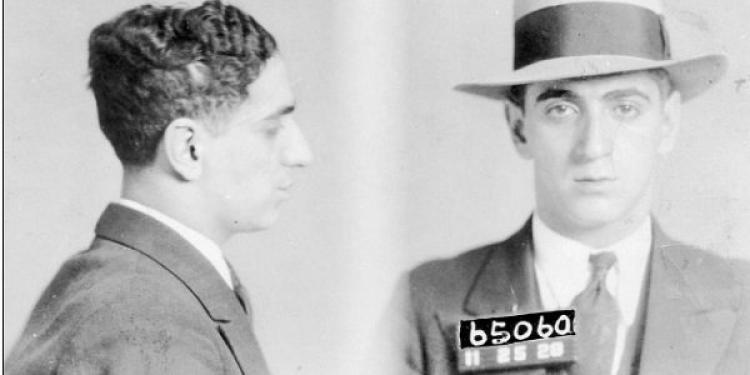LaMotta and Robinson: A Story of The Mafia and The Boxing Industry (part1)
Posted: May 11, 2015
Updated: October 6, 2017

A look at the darker side of the boxing industry.
Boxing, almost by definition has been associated with people who came from depravity and have literally “fought” their way out of squalor. It’s kind of story that makes up more willing to place our wagers via online sportsbooks in the US. Many people involved in this industry, fighters, managers and promoters alike, were from deprived backgrounds. The story boy using boxing as a way to get out seems to be a general cliché nowadays.
• Jake LaMotta’s character was played by De Niro in the film “Raging Bull.”
• Frank Carbo illegally controlled boxing industry in the 1940’s and 1950’s.
• LaMotta finally got his shot at the Middleweight title against Marcel Cerdan
There does exist, some truth in the fact that boxing has attracted negative figures. Young men, who are often unlimited in education, are seduced by the opportunity to make quick money and wealth through a means not rooted in education or trade skills. We must also include the people, often equally as uneducated, who use their street smarts to make money off the hard work and dedication these boxers possess.
Robinson LaMotta and Frankie Carbo
Boxing legend Jake LaMotta, known from the character played by Robert De Niro in Scorcese film “Raging Bull”, spoke of the “Valentine’s Day Massacre”, and his dealings with the Maffia throughout his career. “I just hung my head and do the best thing I had to do. If I had to do it all over again I would do the same thing.”
The mafia have always been involved in boxing matches whether fighters win or lose. Jake LaMotta had a rough time growing up in the 1930’s. After going to reform school, boxing agreed with him. He said that he fought so much on the streets that boxing was natural for him. Turning professional at 19, he showed a strength and aggression that matched his willingness to face anyone to succeed.

Sugar Ray Robinson grew up under equally dismal circumstances. In the ghettos of Detroit, Robinson danced on the streets for money and was attracted to boxing. Boxing offered an escape for Robinson and LaMotta, but equally offered an escape for young mobsters who wanted a better life. A long time ago, the Mafia had a bit more respectability in the industry.
The mafia offered more attraction toward boxers because it presented even more wealth to strive for. Frank Carbo, who illegally controlled boxing industry in the 1940’s and 1950’s, had a power over most managers and could decide what boxers would progress in the industry in order to secure win from gambling outside US gambling laws. Mr Carbo, known as Mr. Grey, controlled who would fight at Madison Square Garden.
Madison Square Garden became the seat of power and influence in boxing.
LaMotta was gaining a reputation for grit and considered himself the “unknown champion for five year.” He credited his lack of visibility to his lack of association with the Mafia. LaMotta’s brother involved himself in the Mafia in order to further LaMotta’s boxing career. The Mafia approached LaMotta asking him to purposefully lose a bout in order to get a championship bout in the future.
LaMotta made a deal with the Mafia and threw the boxing match. Unfortunately, LaMotta wasn’t discreet about his intention of deliberately “taking a fall.” He was stripped of his license to box in New York. The fight only furthered Carbo’s power as he grew closer to James Norris, the new owner of Madison Square Garden. Norris was a multi-millionaire who could secure contracts for venues and television airtime.
Norris only needed the boxers and Carbo would supply the fighters. Norris had connections and set up the International Boxing Club which would control the boxing industry in the 1950’s. LaMotta finally got his shot at the Middleweight title against Marcel Cerdan of France and won the title. Robinson himself, who was outside the mob, had an incredible run in Europe and was currently welterweight champion.
Robinson was talented enough to become successful on his own. If a boxer was able to “get big” without the mafia, they normally would remain untouched. Robinson and LaMotta finally had their championship match. The two won alternating rounds, but LaMotta began to tire by the 11th round. By the 13th round, Robinson would win the bout and “The St. Valentine’s Day Massacre” made US gambling news and history.












